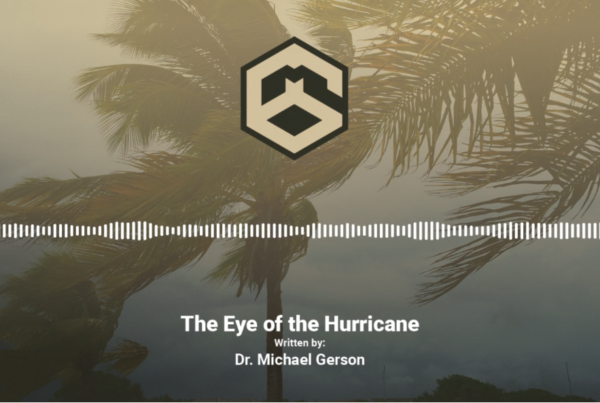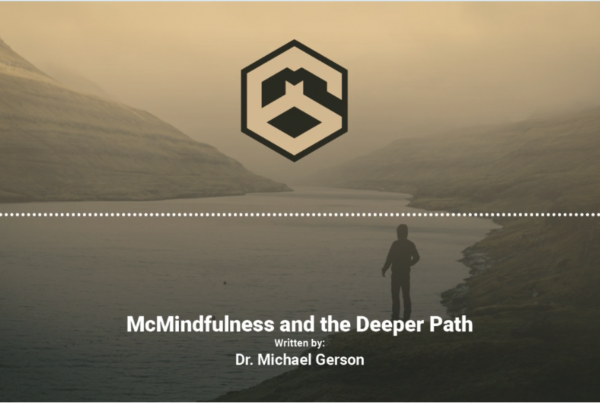So What?
I had a friend once say to me–”why are some people so emotional? Why can’t we all be more rational?” And being the educator and mental skills coach that I am, I took his response quite literally by asking a series of questions.
- Have you ever made an assumption about another person that turned out to be wrong?
- Or have you seen a leader, co-worker, or friend who wrongly judged a situation only to have it blow up in their face?
- How about having an unsuccessful conversation with someone who holds an opposing view?
My friend nodded yes to each of those questions; which led us into a deeper discussion about our brain and how it can sometimes trick us. If you, the reader, answered yes to any of these questions, then I’ve got you hooked! The following is the summary of that conversation.
Human judgement is unreliable. This has been documented dating back to the 1600’s by English philosopher Sir Francis Bacon (Nickerson, 1998). Researchers today have come to describe these errors as cognitive biases, or shortcuts that our brain makes in order to be more efficient (Ariely, 2009; Reivich & Shatte, 2002). In fact, our brain is constantly interpreting information for us without our permission. One particular cognitive bias is what is known as confirmation bias. It is the tendency to look for evidence that is supportive of a hypothesis one favors while failing to recognize and identify evidence that might falsify said hypothesis (Nickerson, 1998). In other words, it’s a tendency to value and remember things that support one’s belief system while pushing aside, forgetting, or failing to recognize things that do not support one’s belief system. If I believe that all pitbulls are dangerous, I am more likely to seek out evidence that supports that belief rather than seek out evidence contrary to that belief. I am more likely to remember the news story about the child who was attacked by a pitbull rather than the dozens and dozens of pitbulls I have passed in the park that were playful and otherwise non-dangerous. I am less likely to listen to and value statistics about the number of pitbull attacks but more likely to hear ambiguous information such as “dog attack” and immediately assume that it was a pitbull. The confirmation bias puts blinders on me. It blocks my ability to be objective and seek any counterproof to my hypothesis.
The confirmation bias impacts me during every waking moment. And it impacts you and everyone else too. So, what does this mean?? Well, it means that every human being has a different filtering system and these filtering systems are not always accurate. It means that each person is tricked by their brain; tricked into believing what they see and assuming it to be true. This can be dangerous, especially in today’s time.
So, how does it work, as my friend has asked. It operates on our beliefs. Essentially, beliefs are anything that we deem to be true of ourselves and/or the world. They come from how we were raised, our environments, critical life events, education, and much more. Reivich & Shatte (2002) describe beliefs by using a metaphoric iceberg. We all have beliefs above the surface, meaning we are aware of them. For me, that could be that “The sky is blue,” “I am a man,” “I love steak,” or “I dislike cottage cheese.” These beliefs are true for me AND they are above my surface of awareness. If you think about an iceberg, the majority exists below the surface and that, according to Reivich & Shatte (2002), is precisely where many of our strongest beliefs exist. So, if the confirmation bias is operating on our beliefs and the majority of our beliefs are out of our awareness. So, what does this say about our own objectivity and our own sense of justice/fairness of the world and others? Our judgement can be impaired. (And this was the point in the story that really got my friends attention). If we never explore/go below the surface to better understand why we think the way we do, we will maintain rigid thinking patterns. And science tells us that rigid thinking can undermine resilience, trust, and a sense of community—all things that leaders, managers, and CEO’s want to cultivate (Ariely, 2009; Reivich & Shatte, 2002). For those of you who have read Deliberate Discomfort, I encourage you to look back at chapters two and three to learn more about some self-awareness strategies.
Going back to my fictitious example of the belief that “all pitbulls are dangerous” it is very likely that that belief is below the surface–meaning, I do not exactly know I am behaving under that belief. I could continue to form assumptions about pitbulls, argue with folks about statistics, and change the way I live simply by having this belief that is below my awareness. It’s not until I or someone I trust can point out my belief and point out exceptions and remove my blinders, I begin to see a more true story.
Another common place for below the surface beliefs are one’s about ourselves; perhaps we might think “I am not good enough,” “Nobody gets me,” “Men cannot act that way,” “I have no chance to get out of my situation.” These beliefs may be strong below the surface icebergs that disrupt our ability to be objective about ourselves and about our environment (Reivich & Shatte, 2002). The deadly effect of these internal beliefs often keep us from meeting our true potential. They might also coerce us into pointing fingers, playing the victim card, or shaming others. Take a look at your social media feed, the news coverage, or talk shows for real life examples of this.
At this point, my friend who appeared to be soaking it all up curtly asked, “So what can I do about it?”
Now What?
So, what to do about it…you are now at least aware of this cognitive bias and understand that our confirmation bias is operating at all times.. The first question to ask yourself, where does this show up for me?
- Where/when do you often get defensive, angry, emotional, or have trouble making a decision?
- This can be a sign that a below the surface belief is at play.
- How often do I reflect on my day or week? What is keeping me from doing it?
- Metacognition is just a fancy way of saying think about your thinking. It is essential to regularly reflect on your ups/downs, as well as to tune into your values and beliefs.
- Reflecting on your values on a regular basis grounds us, gives us clarity, and can even lower stress levels.
- What does reflecting look like for you, and how can it stick? For many of us after an event, we pay lip service to a quick after action review (AAR) but soon forget about it. I argue that it needs to be written down and applied in the future.
- Write down/journal our thoughts around an emotionally charged, annoying, disruptive, or complicated topic/issue.
- Finally, who do I consult with most?
- Talk to a colleague, consult with others (ideally with diverse beliefs/experiences). If you have someone you trust who thinks differently than you, holds different experiences, or maybe sits opposite politically, use them! It will help you shuck off those blinders.
- Writing down our thoughts/reactions as well as talking them out is a natural way to separate ourselves from them and confront the confirmation bias head on.
My friend and I ended the conversation here but both agreed that this is a life-long practice and honestly only the beginning. Especially in a time like today—with political volatility, pandemic concerns, economic uncertainty, and polarizing media blurbs, minimizing our brain’s biases is a must in order for us to persist and thrive in close-knit, loving communities.
References
Ariely, D. (2009). Predictably irrational. New York, NY: Harper Collins.
Nickerson, R. S. (1998). Confirmation bias: A ubiquitous phenomenon in many guises. Review of general psychology, 2(2), 175-220.
Reivich, K., & Shatté, A. (2002). The resilience factor: 7 essential skills for overcoming life’s inevitable obstacles. Broadway books.





